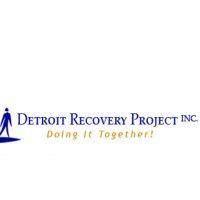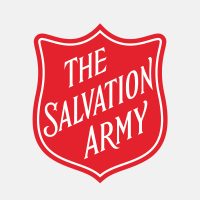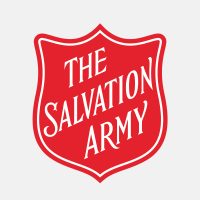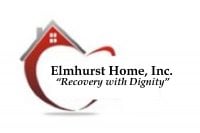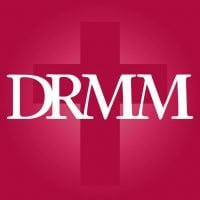Self Help Addiction Rehab
Drug Rehab Center in Detroit, Michigan
Self Help Addiction Rehab in Detroit offers comprehensive outpatient counseling, inpatient detox programs, and aftercare planning to assist clients on their journey to sobriety while building strong, supportive relationships and partnerships with local resources.
About This Detroit, MI Facility
Self Help Addiction Rehab is an Addiction Treatment Facility located in Detroit, Michigan. Founded in 1969, this renowned facility offers a range of services for individuals suffering from Opioid Addiction, Substance Abuse, Dual Diagnosis, and Drug Addiction. With its long history and strong reputation in the field of addiction treatment, Self Help Addiction Rehab stands as a trusted resource for those seeking help and support in overcoming their substance use disorders.
At Self Help Addiction Rehab in Detroit, individuals can access various levels of care to address their addiction and substance abuse issues. The facility offers aftercare support to ensure long-term recovery success. Their comprehensive treatment programs include detoxification services designed to assist patients safely navigate the withdrawal process. Moreover, they offer residential levels of care where clients can receive intensive support and therapy in a supportive environment. In addition to it, they provide outpatient and intensive outpatient programs that cater to the individual needs of each patient. With a focus on dual-diagnosis treatment, Self Help Addiction Rehab addresses both addiction and underlying mental health conditions simultaneously, enhancing the possibility of lasting recovery and improved overall well-being.
Genders
Ages
Modality
Additional
Conditions and Issues Treated
Using both legal medications and illegal substances in order to maintain an addiction is substance abuse. Illegal substances can become addictive after a single use. If you are obtaining legal medications illegally, you may be suffering from substance abuse.
Fortunately facilities like Self Help Addiction Rehab in Detroit, MI are here to help.
Opioid addiction treatment facilities in Michigan, like Self Help Addiction Rehab cover both illegal and prescription opioids abuse. Most plans include detoxification and subsequent medications to ease the process. Behavioral therapies and counseling are also necessary to resolve the root cause of addiction.
When someone in Michigan struggles with both addiction and mental or emotional illness, this is considered a dual diagnosis. Dual diagnosis treatment can include emotional trauma, bipolar disorder, schizophrenia, depression. Getting treatment for these issues must occur at the same time to treat either of them effectively.
Levels of Care Offered
This center offers a variety of custom treatment tailored to individual recovery. Currently available are Aftercare Support, Detox, Drug Rehab, Dual-Diagnosis, Intensive Outpatient, Outpatient, Residential, with additional therapies available as listed below.
A detox program helps the person physically withdraw from drugs and helps them track their progress. So, suppose the person isn’t ready for sobriety (or relapses). In that case, the treatment professionals can catch it early and help re-orient them towards recovery.
In order to focus on the psychological aspects of addiction, one must first address the physical symptoms of withdrawal.
Withdrawal symptoms can be painful, even fatal, so managing the detox process carefully is critical. Severe withdrawal symptoms are often treated with more advanced pharmaceutical interventions. Nausea and headaches are common side effects of detoxification.
An intensive outpatient treatment program is set up for those struggling with an addiction to begin the recovery process. Patients come to Detroit, MI to Self Help Addiction Rehab for therapy, support, programs, and medical supervision. Intensive outpatient treatment is often very tightly scheduled and heavily structured.
Residential treatment programs are those that offer housing and meals in addition to substance abuse treatment. Rehab facilities that offer residential treatment allow patients to focus solely on recovery, in an environment totally separate from their lives. Some rehab centers specialize in short-term residential treatment (a few days to a week or two), while others solely provide treatment on a long-term basis (several weeks to months). Some offer both, and tailor treatment to the patient’s individual requirements.
Treatment for substance abuse does not cease after an individual successfully completes a detox or rehabilitation program. A vital follow-up treatment service is aftercare support provided to individuals at Self Help Addiction Rehab in Michigan after they attain initial sobriety.
Aftercare support often takes the following forms: 12-Step Programs, Outpatient Treatment Programs, and Support Groups. The most effective aftercare programs are tailored to meet an individual’s specific needs and circumstances.
Self Help Addiction Rehab‘s Therapies & Programs
Spousal relationships bear the brunt of alcohol and drug dependence. It becomes critical to submit the relationship to couples therapy to prevent straining it further. Some facilities like Self Help Addiction Rehab in Detroit, MI offer couples therapy options to manage intimate partnerships amid the recovery process. Other couples-focused treatment plans can provide the patient and their partner tools to get things back to normal.
When family members are more proactive and involved in the treatment procedure, it encourages the patient to advance his or her progress. Moreover, it shouldn’t be ignored that genetics play a role when it comes to addiction, so it’s better to approach the problem as a unit. Also, with proper education, family members can help an individual avoid addiction triggers and guide him or her in making lifestyle changes necessary for his or her sobriety.
It has been said that unhealed trauma is the root of most addictions. Trauma therapy is a way of addressing trauma while in a safe situation in order to heal. Healing past traumas and introducing coping strategies are strong foundations for sustained recovery from addiction. This may involve individual or group counseling or both, in a Detroit, MI facility. Other forms of therapy have been proven to assist in healing past traumas.
Dialectical Behavior Therapy (DBT) helps those who attend Self Help Addiction Rehab understand how their feelings, beliefs, and thoughts affect their behaviors. DBT is particularly useful for people with self-harming behaviors, as well as those with substance abuse disorders. DBT teaches people how to tolerate distress, regulate their emotions, and how to become mindful.
Cognitive Behavioral Therapy (CBT) is a type of psychotherapy that focuses on the underlying thoughts and behaviors that caused the problem of addiction in the first place and may cause a relapse. Negative feelings are common in substance abuse disorders, and if not recognized, they can cause co-occurring disorders.
CBT involves strategies that help to change the thinking and behavioral pattern by cognitive restructuring. In simple terms, it helps to remove negative thoughts and provides long-term benefits. Also, CBT promotes self-awareness, self-control, and healthy ways to respond to negative thoughts. It can be administered as a mono-therapy as well as a part of combination therapy.
The 12-step program is a part of substance abuse treatment. In this program, peers help each other to achieve the goal of abstinence. It was initially developed by the founders of Alcoholics Anonymous. Due to its huge success, the 12-step program is included as a part of other substance abuse treatments.
The 12 steps guide at an individual level. It begins with the individuals accepting that they are addicts, and they understand its consequences. It is followed by focusing on the recovery process and making amends for hurting others. The program provides the benefit of cognitive restructuring, which refers to the process of change in the negative thoughts that leads to long-term benefits.
Payment Options Accepted
For specific insurance or payment methods please contact us.
Is your insurance accepted?
Ask an expert, call (888) 674-0062
Self Help Addiction Rehab Associated Centers
Discover treatment facilities under the same provider.
- Self Help Addiction Rehab - West Grand Boulevard in Detroit, MI
- Self - Help Addiction Rehab - Maybury Grand in Detroit, MI
- Self - Help Addiction Rehab - Warren in Warren, MI
Learn More About Self Help Addiction Rehab Centers
Additional Details
Specifics, location, and helpful extra information.
Detroit, Michigan 48208 Phone Number(313) 894-8444 Meta DetailsUpdated November 25, 2023
Staff Verified
What else do people call Self Help Addiction Rehab?
People have occasionally also searched for “Self Help Addiction Rehab (SHAR) Main in Michigan”
Patient Reviews
There are no reviews yet. Be the first one to write one.
Detroit, Michigan Addiction Information
Michigan has the second-highest rate of drug and alcohol abuse in the nation. Heroin is linked to more than 50% of the state's hepatitis C cases. Marijuana is the drug most often associated with crimes in Michigan, followed by methamphetamines. Opioids alone are responsible for almost 20% of all drug overdose deaths in Michigan.
Over 1,000 drug-related overdose deaths occurred in Detroit, Michigan, in 2017 alone. Opioids (42%) and benzodiazepines (22%) are the most common drugs involved in overdose deaths. Drug overdoses killed more people in 2016 than homicides. In Detroit, Michigan, there are a variety of drug rehab centers to choose from. The most important thing is to find a facility that will best meet the needs of the individual.
Treatment in Nearby Cities
- Manistique, MI (293.8 mi.)
- Redford, MI (10.0 mi.)
- Cheboygan, MI (237.7 mi.)
- Menominee, MI (294.8 mi.)
- Reed City, MI (160.5 mi.)
Centers near Self Help Addiction Rehab
The facility name, logo and brand are the property and registered trademarks of Self Help Addiction Rehab, and are being used for identification and informational purposes only. Use of these names, logos and brands shall not imply endorsement. RehabNow.org is not affiliated with or sponsored by Self Help Addiction Rehab.





